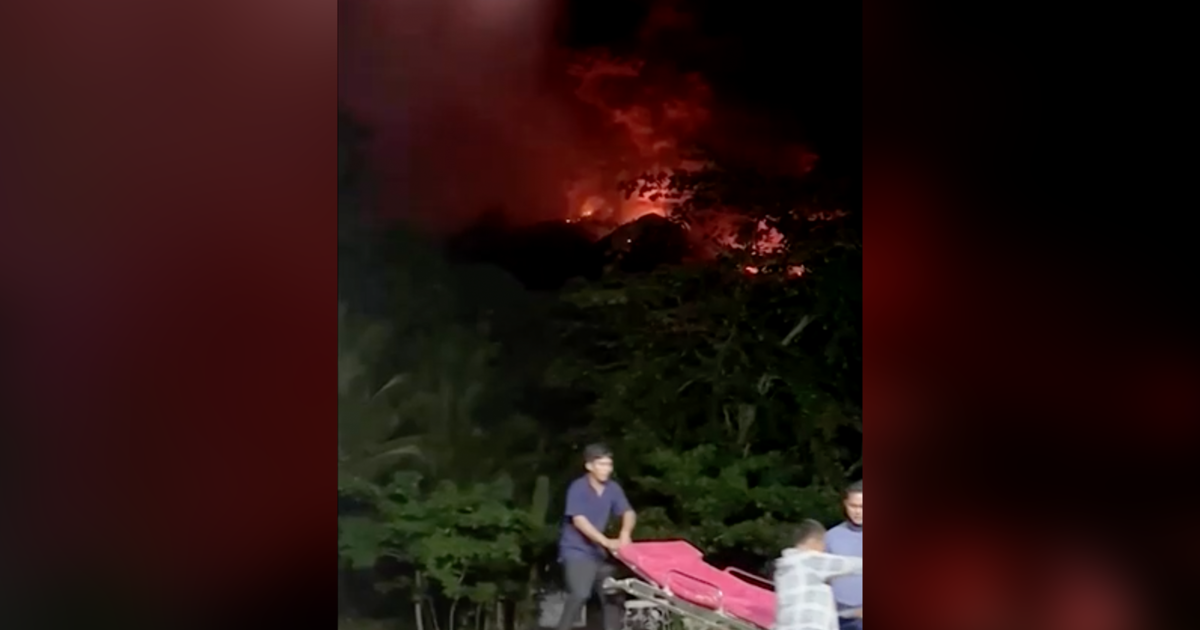CDC reduces quarantine time from 2 weeks to 10 days with no symptoms
The Centers for Disease Control and Prevention announced new quarantine guidelines for people who were exposed to coronavirus, reducing the length of time from 14 days to 10 days without symptoms or seven days with no symptoms and a negative test. Officials said the shorter time period is intended to encourage more people to quarantine.
"Reducing the length of quarantine may encourage more people to do so, especially when they may not be able to work during quarantine time," CDC's COVID-19 Incident Manager, Dr. Henry Walke, told reporters on a call Wednesday. He said the agency still recommends 14 days, but is now offering two "acceptable alternative quarantine periods."
"As we learn more about the virus, we continue to refine our guidance," Walke said, emphasizing that everyone should quarantine if they are exposed — or are concerned about exposure — to the coronavirus. He added that people should continue to monitor themselves for symptoms for 14 days after exposure — even if they end quarantine sooner.
According to Dr. John Brooks, chief medical officer for the CDC, when quarantine is reduced to 10 days, the "residual risk" of someone exposing someone else after leaving quarantine is only about 1%.
"The recommendation made today is from extensive modeling not just by the CDC but by other scientific institutes," Brooks said. "All of these point to the same thing — that a person leaving quarantine early could expose someone else. When reduced to 10 days, the residual risk is 1%, upper limit of that risk is 12%. Seven days is 5%, and upper limit is 10%."
Dr. Scott Gottlieb, former commissioner of the Food and Drug Administration, told CBS News' "Face the Nation" that a shortened recommended quarantine period should capture the "vast majority" of coronavirus infections.
"What you want are recommendations that are prudent and practical that people are going to follow," Gottlieb said Sunday. "And when you have a 14-day quarantine period, that's such a long period of time that a lot of people aren't going to follow that anyway, and it makes it difficult to adhere to recommendations. So putting in place a 10-day quarantine period, even a seven-day quarantine period, you're going to capture the vast majority of infections within that time frame."
Several hours after Wednesday's announcement, the CDC had yet to update the official quarantine guidance posted on its website.
Officials stressed on the call that the agency still advises against unnecessary travel, especially during the winter holiday season when people are together inside more often and virus transmission increases.
"The CDC recommends staying home and not travel," Walke said. "If you do travel, get tested 1-3 days before travel and 3-5 after, and minimize any movement between times."
COVID-19 hospitalizations hit a record high of more than 90,000 people on Thanksgiving Day, according to the COVID Tracking Project. In the run-up to the holiday, public health experts urged Americans to forego large family celebrations.
Nevertheless, more than 1 million Americans boarded flights on the Sunday before Thanksgiving, the most for a single day since mid-March, according to figures from the Transportation Security Administration. The three-day period from Friday to Sunday was the busiest travel weekend since the weekend of March 14-16.
Dr. Celine Gounder, a member of President-elect Joe Biden's COVID-19 advisory board, told CBSN that they expect the movement will lead to an increase in cases, and eventually deaths, in the coming weeks. Dr. Deborah Birx, the coordinator of the White House Coronavirus Task Force, warned that those who traveled for the holiday and attended large gatherings should assume they were infected.
"Unfortunately," Gounder said, "that means that many people who celebrated with family, with friends over Thanksgiving will find themselves in the hospital, in ICUs over Christmas and New Years."



